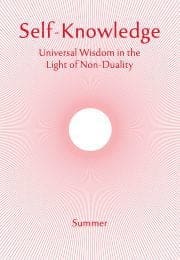Prayer and Self-Knowledge
A discourse given at a recent meeting by the Warden of Shanti Sadan
That which is unapproachable by the mind and which gives the mind the ability to think, that is to be known as Brahman, and not what people here worship as an object of the mind.
Kena Upanishad 1:6
Let us consider the question of prayer—where God is usually worshipped or prayed to as if separate from our Self—in the light of this verse from the Kena Upanishad. For prayer is a practice common to all the great religions, and it is considered by many to be essential for safe and wise living.
First, what is prayer? Put simply, prayer is a talking to God. Expressed in a more sophisticated way, prayer is a communication made by the human mind, generally through words, to a great being or presence, that is thought to be all-knowing and all-powerful, infinite and eternal. This supreme being is the power we pray to, because its knowledge includes a complete awareness of our particular situation, and not only of our thoughts, but also of our sincerity. It knows us better than we know ourselves. Prayer would be pointless without this belief in one who hears our prayers and knows our heart.
But who and where is this great being that we refer to as the Infinite, God, Allah, the Highest, or a saint or incarnation of God who for us, represents the Highest? If such a Power is aware of what is transpiring in our own mind—if it knows the motions of our thought and our sincerity—then it makes no sense to regard such a being as essentially separate from us. As Rumi says in the Masnavi: ‘Thou art an inmost ground of consciousness, witnessing our every thought.’ The great reality must somehow be present in the mind itself.
Subscribe or enrol for free guest access to read all of this article and Self-Knowledge online.
Already subscribed or enrolled? Log in:


